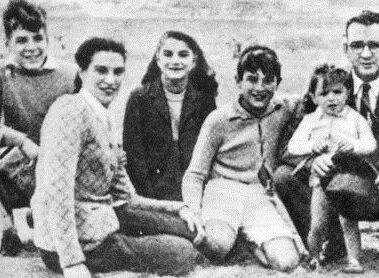Nuala Ní Dhomhnaill had the BC audience mesmerized.
By Colleen Taylor
As a music journalist, I rarely think about “the inaudible.” But two weeks ago, that changed at a Boston College event titled “Poems of the Repossession: A Celebration of Irish Poetry,” featuring Irish language poets Louis de Paor, Nuala Ní Dhomhnaill, Liam Ó Muirthile and Deirdre Brennan. Part poetry reading, part book launch, and part cultural campaign, the gathering marked the publication of “Leabhar na hAthghabhála” (“Poems of Repossession”). Editor Louis de Paor began the night by explaining the project was born out of “frustration with the invisibility and inaudibility of Irish-language poetry.” The audience, made up of BC professors, local Irish Americans, Irish expats and even a few undergraduates whom I lured there with the enticement of extra credit, answered de Paor’s profound and politicized opening statement with silence. The silence seemed to ring of our own culpability in Anglocentrism and monolingual entitlement. However, with de Paor’s guidance, the room collectively re-tuned their ears to the inaudible, prepping themselves to hear sounds and rhythms that are too often quieted.
“When you are studying 20th century Irish poetry, there is only one place to start,” de Paor said, “And that is Springfield, Massachusetts.” The audience immediately broke its silence with a laugh at the irony of such a statement. De Paor was referencing the first poem on the agenda, one that demolishes standard cookie-cutter definitions of Irish language poetry. Pádraig Ó hÉigeartaigh’s “Ochón! A Dhonncha,” read by Liam Ó Muirithle. Ó hÉigeartaigh had learned to speak and write Irish not in Ireland, but in Springfield—somewhat of an anomaly in standard historical narratives of the language. At the beginning of the 20th century, he wrote this lament for his drowned son, Donncha. The poem itself pulled the audience back in time and back across the Atlantic, imaginatively traveling over ripples of sound and chiming in perfect synchronization with an older 19th century tradition of caoineadh (keening/lament). With Ó Muirithle’s haunting, timeless cadence, it was as if the bard of the Gaelic Age was in the room in living, breathing form.
Louis de Paor is the editor of “Leabhar na
hAthghabhála” (“Poems of Repossession”).
Each poet had their own highlight in the evening’s temporal tour through Irish poetry. Nuala Ní Dhomhnaill, poetic superstar that she is, had the audience laughing and mesmerised within the space of one breath. She read her “Language Question” poem, underscoring the political and cultural contexts with which De Paor set the stage. The sweet, demure Deirdre Brennan upended everyone’s expectations when she spoke passionately about feminism and lingering women’s issues from mid-century Ireland, then read poems in the voices of witches, monsters and Gothic personas. Finally, Liam Ó Muirithle closed the night with a poem that was nothing short of music. He spoke about his own challenges growing up in nationalist Cork with a bilingual tradition, and the inherent conflict of that linguistic dualism. Still, his poem could have really been about anything: what resonanted was the rhythm and mirth of his meter, the way the words bounced from his mouth and ricocheted off the walls of the lecture hall.
The event might have started with de Paor’s cultural, linguistic grievance—and rightly so—but it ended in pure celebration, in which each member in the audience, whether Irish-speaking or not, played her part. Even I, who can only boast a modest cupla focal, felt involved in the de Paor’s project, in my small way. Simply by hearing Ní Dhomhnaill read, feeling the power behind Brennan’s soft voice, smiling and laughing with O’Muirthle’s bouyant Irish, and grieving with a poem like Ó hÉigeartaigh’s, I knew I had joined in that effort to make the inaudible audible.
The reading, which brought such influential poets together in one room, was an extraordinary event on many levels: extraordinary for the language, the Irish-American community, and, of course, the collegiate community at BC. Still, it wasn’t until the next day that the impact of those words hit me at full volume, in the written responses from my students, none of whom had heard a syllable of Irish before attending the event. Lexi Violet, a freshman from Jamestown, R.I, responded to the Irish poems she heard instinctually, akin to how people respond to a nonverbal language like music: “Though I did not understand the Irish readings, I noticed that during certain parts of the poem, I could feel what the poet was trying to say.” Jess Washek, another Freshman, admitted that depite being initially confused by some of the references and the foreign-sounding guttaral vowels of Irish, she found herself swept up in the process of communal repossession. She wrote, “the profound appreciation and passion for Irish poetry that radiated throughout the room was contagious and made me all the more interested in listening to what the poets had to say.” “Radiatied” is just the word. If only for an hour, light shone on a language and a lyric tradition that too often gets left behind in the shadows. And perhaps the brightest light of all is that de Paor’s efforts to make Irish language poetry audible have now reached some young, fresh ears of the next generation.









